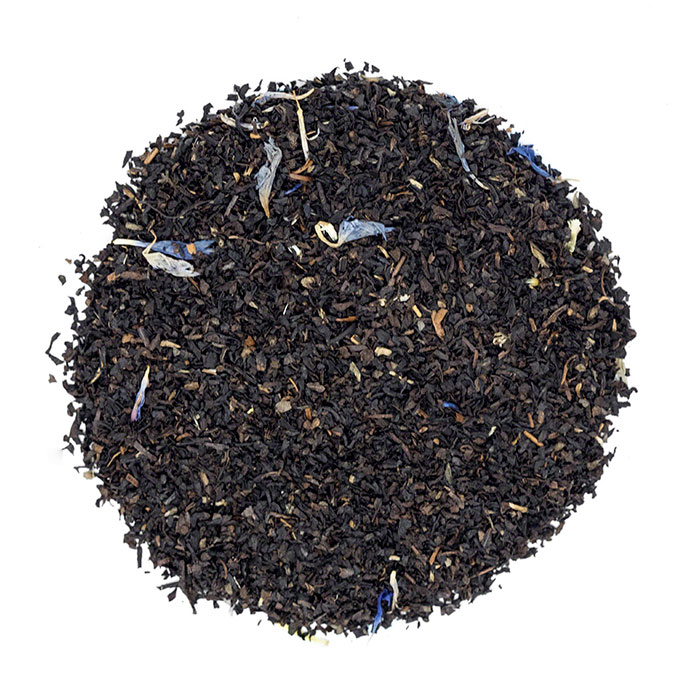15 Benefits of Drinking Acai Berry Tea
There is something very berrilicious in blends bursting with acai, blueberry, strawberry or raspberry flavor. The world’s infatuation with berries, both wild and cultivated, doesn’t surprise – they often have a perfect balance of a sweet and tart note and high levels of antioxidants.
Interestingly, not all berries are berries by a botanical classification. For example, raspberry is actually a fruit. And if you thought banana is a palm tree, you may be in for a surprise. Bananas are berries too.
But Acai berry tree is a palm, and it produces fruits similar to blueberries twice a year. Acai berries became popular only recently, but they have been around for many centuries. This fruit is especially popular in Brazil, where it’s mostly cultivated. It’s used both for its flavor and health benefits, for eating, drinking and flavoring food.
Health benefits of Acai Berry tea
While the acai berries have been a food source for the Amazonian people for centuries[1], in Europe, they gained popularity mostly because of many health claims. Acai berries are very rich in nutrients and contain „polyphenols, iron, vitamin E, and unsaturated fatty acids“[2], and may offer antioxidant, anti-inflammatory, anti-cancer, antimicrobial and antiviral benefits[3] and improve brain health[4].
1. Is acai berry good for weight loss?
Although acai berry products are often marketed as a weight loss aid, there is very little scientific evidence that they may actually help. The lack of evidence could be related to the fact that acai was not popular or well-known outside of Brasil until only a few decades ago. Some evidence shows that they may improve energy metabolism, thus aid in weight loss too. However, more research is needed to prove those benefits, and most importantly, determine the dose of anthocyanin[5] that would be beneficial for weight loss. Regardless, acai berries are without a doubt a good source of antioxidants and may benefit the overall health.
2. High in antioxidants
Acai berries are often called superfoods because of their high antioxidant levels. In fact, studies showed that freeze-dried acai may have the highest antioxidant levels of all fruits[6]. The most important may be anthocyanin, the same antioxidant found in purple tea[7]. Anthocyanins are pigments that give deep purple or blue color to fruits and plants.
3. Reducing blood sugar
One study showed that acai may be beneficial for reducing blood sugar levels in overweight people[8].
4. Lowering cholesterol levels
Consuming the acai berry pulp may lead to lowering cholesterol too. Same study showed a borderline significant reduction of the “bad “LDL cholesterol[9] after eating 200 grams of acai pulp daily for a month.
5. Reducing oxidative stress
Because of high levels of antioxidants, acai berries may be beneficial for reducing oxidative stress[10] [11]. Intake of antioxidants rich food is one way of reducing oxidative stress and reducing the risk of diabetes.
6. Neuroprotective effects
Research showed that acai berries may be a good candidate for developing alternative bipolar disorder therapy[12].
7. Reduces the risk of brain damage
Acai berries may not only help with treating mental disorders, they may show benefits prevention of other brain related diseases such as stroke[13] or Alzheimer’s disease[14].
8. Preventing heart diseases
Acai berries may help to reduce the risk of cardiovascular diseases by combining different health benefits, including lowering cholesterol blood sugar.
9. Reducing inflamation
Acai berries may have a big role in fighting free radicals and reducing inflamation[15].
10. Reducing blood pressure
These blue berries may have a significant influence on reducing blood pressure too. However, studies are contradicting, depending which type of acai berry extract was used in the study[16].
11. Anti-cancer activity
Antioxidants in acai berries may help in reducing the number and growth of cancer cells[17]. Although the anti-cancer activity of acai berries specifically has not been researched in people yet, studies in test tubes and animals showed potential in preventing or treating melanoma, colon, bladder, breast cancer[18] and leukemia[19].
12. Reducing exercise-induced muscle damage
A study including young sprinters and acai berry juice supplementation showed that it may have a moderate effect on reducing a muscle damage caused by excercise[20].
13. Improving immune system
Acai berries may be a great fruit to support immune system. Studies showed that even a small amount of acai berries may boost an immune cell function[21].
14. Anti-aging
Anthocyanin in acai berries may be beneficial for prevention of skin aging, and UV caused skin aging[22].
15. Helping wounds to heal
Another potential benefit of acai berries, also related to skin, is wound healing. Research showed that acai berry water extract may help wounds heal rapidly, leaving a wound area on the skin thinner and smoother once the wound has healed[23].
What does acai berry tea taste like?
Acai berries are not as sweet as other berries. The flavor may be compared to the flavor of other dark berries, with more tartness and even slight bitterness. They are often used for flavoring many deserts, such as ice creams or for making smoothies. The most acai berry teas are actually blends with green or black tea. Other way of making an acai berry tea is using an acai powder. Powders are perfect for both hot and cold drinks, but also for making lattes and smoothies.
Caffeine content of herbal tea
Acai Berry tea is a herbal tea. So, unless blended with pure teas, it has no caffeine. This makes it suitable for people sensitive to caffeine too, or for drinking in the evening. However, since there is not enough evidence on benefits or side effects of acai berries and interactions with medicines, do not drink or eat excessive amounts, especially without consulting your doctor.
Disclaimer: This article is for informational purposes only. It’s not intended to replace medical advice, diagnosis or treatment. Every person is different and may react to different herbs and teas differently. Never use teas or herbs to treat serious medical conditions on your own. Always seek professional medical advice before choosing home remedies.
References:
[1] https://nccih.nih.gov/health/acai/ataglance.htm
[2] https://www.ncbi.nlm.nih.gov/pubmed/32092924
[3] https://www.researchgate.net/publication/286767042_Cardiovascular_and_Metabolic_Effects_of_Acai_an_Amazon_Plant
[4] https://www.ncbi.nlm.nih.gov/pmc/articles/PMC5613902/
[5] https://www.ncbi.nlm.nih.gov/pmc/articles/PMC5530435/
[6] https://www.mdanderson.org/publications/cancerwise/the-acai-berry.h00-158515623.html
[7] https://www.hindawi.com/journals/joph/2018/6830835/
[8] https://www.ncbi.nlm.nih.gov/pubmed/21569436
[9] https://www.ncbi.nlm.nih.gov/pubmed/21569436
[10] https://www.ncbi.nlm.nih.gov/pubmed/31751439
[11] https://www.mdpi.com/books/pdfview/book/260
[12] https://www.ncbi.nlm.nih.gov/pmc/articles/PMC5066013/
[13] https://www.mskcc.org/cancer-care/integrative-medicine/herbs/acai-berry
[14] http://jamescollinsnutrition.com/articles/study-demonstrates-the-brain-health-benefits-of-acai-berries/
[15] https://www.ncbi.nlm.nih.gov/pmc/articles/PMC3068482/
[16] https://www.researchgate.net/publication/286767042_Cardiovascular_and_Metabolic_Effects_of_Acai_an_Amazon_Plant
[17] https://www.cancertherapyadvisor.com/home/tools/fact-sheets/acai-berry-and-cancer/
[18] https://www.cancertherapyadvisor.com/home/tools/fact-sheets/acai-berry-and-cancer/
[19] https://news.ufl.edu/archive/2006/01/brazilian-berry-destroys-cancer-cells-in-lab-uf-study-shows.html
[20] https://www.ncbi.nlm.nih.gov/pmc/articles/PMC4447763/
[21] https://nutritionfacts.org/2013/08/22/the-science-on-acai-berries/
[22] https://www.researchgate.net/publication/281031602_Role_of_Anthocyanins_in_Skin_Aging_and_UV_Induced_Skin_Damage





